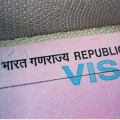
Depending on your personality you will either start worrying about your India vaccinations the moment you think about coming, or three days before you leave.
If you are searching for an authoritative list of vaccinations required for India, there isn’t one. Aside from Yellow Fever (see below), no one will force you to decide which vaccines you need and which ones you can do without.
Here are some tips to help you decide which vaccinations you need before you come to India (even if you are leaving in three days):
First, some introductory notes:
- Consult your primary physician first since he/she will know your situation best.
- This is not a medical website and none of the information should be considered as medical advice.
- Some vaccines need to be taken in a sequence (like Hepatitis A) and you should start them several months before your travel. (We’re all looking at you now Mr. I’m-Leaving-Tomorrow). Others, like Typhoid, have limited validity and you may need a booster. Consult your doctor if you need to travel in an emergency.
- No vaccine is 100% effective, so don’t assume you have superhero-like immunity to any and all diseases. Practicing basic precautions is still the best form of prevention.
- All of these vaccinations are available in India at much cheaper rates if you opt to get them soon after you land, but some take a few weeks to be effective and you will be unprotected during that time.
- If your child needs a routine vaccination while you are here, it can be done safely and cheaply at any local hospital; just bring your medical records with you.
Questions to help you decide which vaccinations you need
Where are you going in India?
Certain parts of the country are more prone to illnesses than others. For example, malaria is not a problem in areas of high elevation like Himachal Pradesh.
Will you be in the forests or cities?
The more you will be visiting forests and villages, the more you want to protect yourself against certain diseases. If you are only going to be staying in a big hotel in a major city, your risks are much lower.
Are you coming with children?
Children often come in close contact with animals and might not report a small bite to you. Therefore, you may want to consider a rabies vaccination.
How long are you staying?
The longer you stay, the greater your risks are. If you will only be here for a few days or weeks you might feel comfortable with just the basics. If your plans are more long-term, you should think about all your options.
Highly Recommended Vaccines
Regardless of your answers to the above questions, the smart move is to make sure all these vaccinations are up-to-date:
- Hepatitis A
- Hepatitis B
- Typhoid
- Tetanus/Diphtheria
Yellow fever – If you are arriving to India from an at-risk country, or have recently traveled to one, you will need to show proof of vaccination from Yellow fever. These at-risk countries are located in Africa and Central/South America. Click here for a complete list.
Polio – India has worked very hard to become ‘Polio Free’, a status it earned in March 2014. Do your part and make sure you have any needed booster shots if you received the vaccine as a child.
Measles, Mumps, Rubella – Check to see if you need a booster on this vaccine before travelling.
Your discretion
Rabies – This is a good idea for children and if you will be spending a lot of time outside.
Malaria – Malaria is common all over India except in states with very high elevation. There is no vaccine for malaria, but you can take oral pills. There are many varieties, so choose the one that is best for you. Consult your doctor if you plan on being in India for several months or more.
Japanese Encephalitis – This is a rare, but deadly disease. It is most common in rural areas, after dusk, from May to October.
Meningitis/Meningococcal – This is recommended especially for backpackers under 25 years old.
Take reasonable risks
There is a wide spectrum of advice when it comes to required vaccinations for India. The hypochondriac in you may want to take everything, while the free-spirit may want nothing. As in most cases in India, the best answer is somewhere in the grey. If you are going to take a risk by not getting all the vaccinations, make sure you are doing it for a good reason that your mother would agree with.
Additional Sources
http://www.mdtravelhealth.com/
Image Credit: US Army Corp of Engineers Europe Distrcit on Flickr





[…] you come, check out the vaccination guide and get acquainted with hospitals in India . These are things you don’t want to find out […]